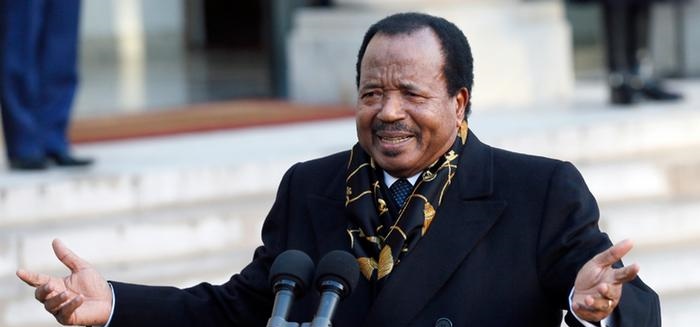Cameroon’s Presidential Elections
July 13, 2018 | Expert Insights

Cameroon will hold its presidential election in October 2018. Meanwhile, the US ambassador to Cameroon has been accused of meddling with the elections.
Background
The Republic of Cameroon shares its borders with Nigeria to the west and north, Chad to the northeast and Gabon, Congo to the south. The territory of present-day Cameroon was first settled during the Neolithic era. Due to its cultural and geological diversity, Cameroon is often referred to as “Africa in miniature.”
Mr.Ahidjo was the first president of Cameroon. The political climate at that time was marked by the smouldering civil war against the radical party,UPC. However, the war was won brutally by the government. The state of emergency during the war helped Ahidjo establish a repressive dictatorship. He ruled the country for 22 years and handed over the presidency in 1982 to Paul Biya. The stability in power transition was short-lived, the struggle between Biya and Ahidjo lasted for two years and concluded with Biya emerging as the undisputed leader.
The United States established diplomatic relations with Cameroon in 1960, following the independence of the French-administered part of the country. U.S. relations with Cameroon are positive, although from time to time they have been affected by concerns over human rights abuses and the pace of political and economic liberalization. The two countries are partners in countering regional threats to stability, such as the threat of Boko Haram.The United States is a leading investor in Cameroon, largely through the Chad-Cameroon petroleum pipeline project. The United States and Cameroon have a bilateral investment treaty.
Analysis
Cameroon’s anglophone regions are set to participate in presidential elections on October 7, 2018. These regions have been restive for months now amid armed exchanges between government forces and secessionists, to create the state of Ambazonia. The worsening situation in the region makes it increasingly difficult to hold peaceful polls. However, the presidential poll is the biggest contest of the year for Cameroon.
Last month, Washington’s ambassador, Peter Henry Barlerin, met with the 85-year-old president, who has taken initial steps to seek re-election in October. He told Mr. Biya that he “should be thinking about his legacy and how he wants to be remembered in the history books.” The remarks caused an uproar among officials in Cameroon and in the local media, which accused him of trying to influence a foreign election. However, the ambassador and the US embassy denied the accusations.
The controversy stirred by the American ambassador is a sign of just how deeply entrenched Cameroon’s current government is. Critics say his loyalists operate with impunity, creating nothing more than a charade of a democracy.The storm caused by Mr. Barlerin’s remarks about Mr. Biya’s legacy is not the first time American diplomats have become entangled in election controversy on the continent.
Under the 36-year tenure of President Paul Biya, the nation has been accused of numerous human rights abuses. The secessionist movement in Cameroon has raised fear of spiralling into a widespread civil war, as it has already claimed 425 lives.
Cameroon’s opposition is fractured, and, like in past elections, no candidate with a mass following has emerged.“Some Cameroonians are so fed up with the government that they may withhold their vote in protest”, said Hans De Marie Heungoup, a Central Africa senior analyst for the International Crisis Group. Past elections won by Mr. Biya have been called flawed and full of irregularities.
Even though victory for Mr. Biya seems likely if he formally joins the race, his supporters were still miffed at what they interpreted as an attempt at a foreign government to urge him to step down.“The American ambassador is not an enemy of Cameroon,” said Saint-Eloi Bidoung, a first deputy mayor in Yaoundé. “But he should know that the departure of President Biya from power depends solely on the will of Cameroonians, and not from a foreign power, even the United States of America.”
The prospects of a Post-Biya nation seem sombre. If he wins the elections, Mr.Biya would be in his 90s by the end of his 7 year term. If he were to die in office, the Senate president would take over until an election is held two months later. But questions of whether Mr. Biya’s powerful loyalists would stand by idly need to be considered.
Assessment
Our assessment is that since the Cameroon elections will be held midst a gruesome civil unrest, the election commission must ensure the proceedings are conducted in a free and fair manner. We believe that pragmatic leadership from the opposition is the need of the hour for Cameroonians. We feel that the US ambassador’s alleged involvement in the elections is least of the problems that Cameroon has to deal with.








Comments